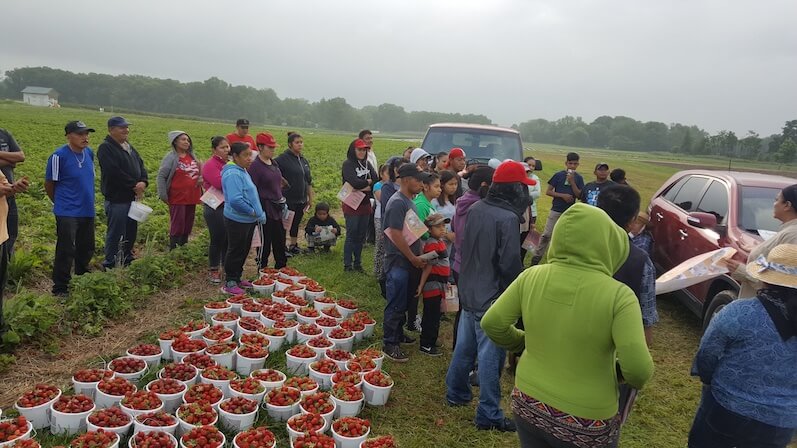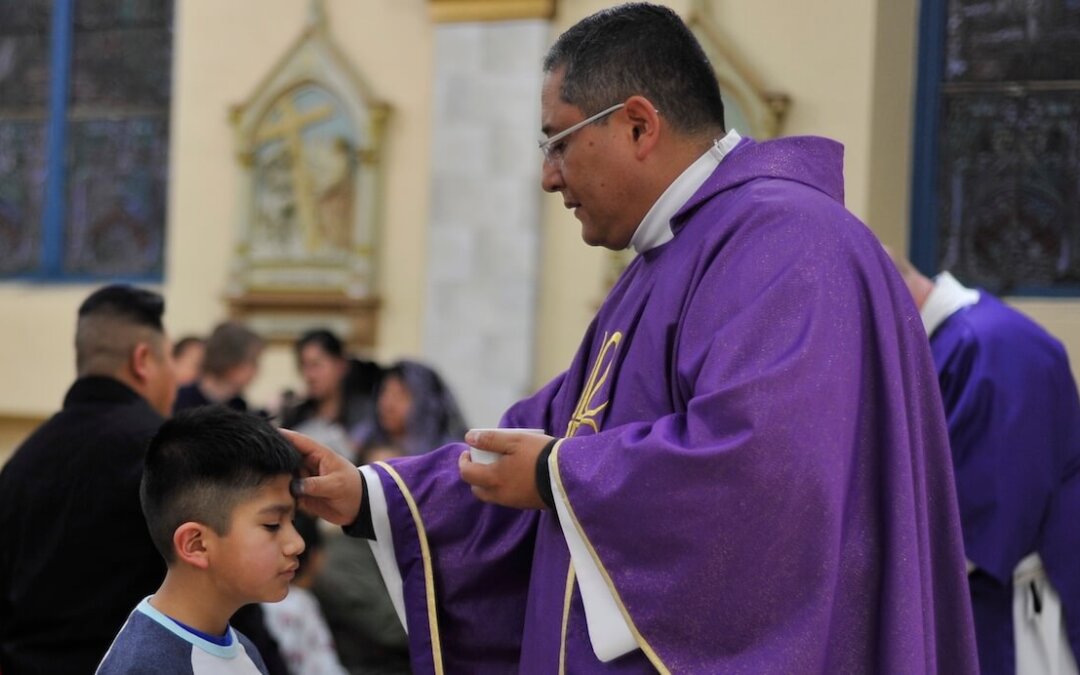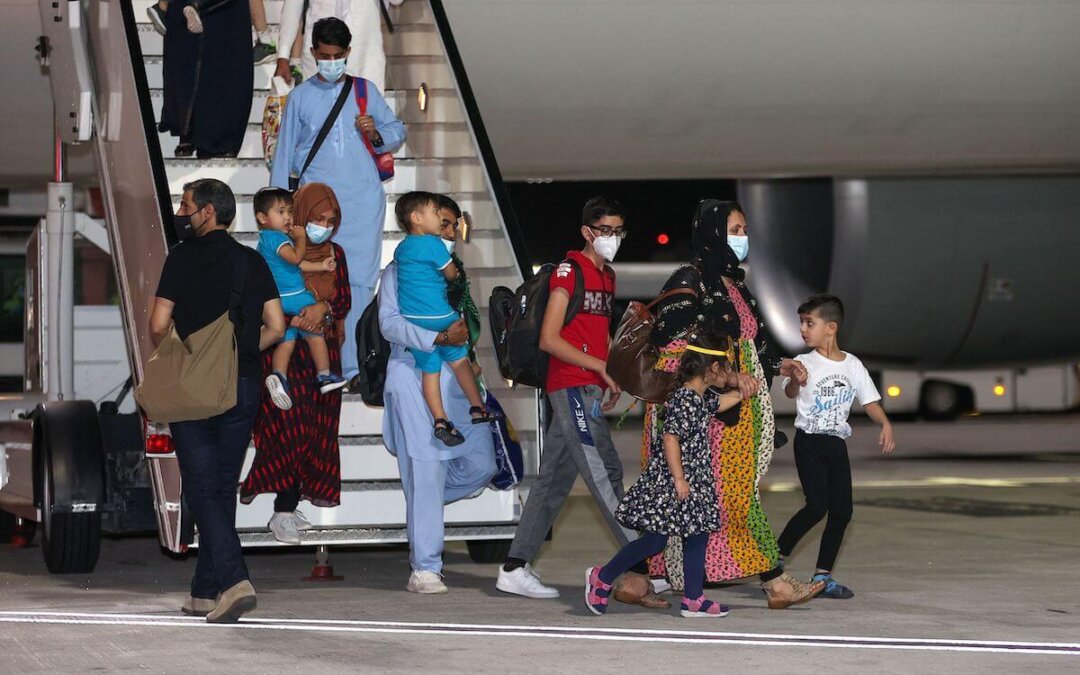
This year has been a year of learning, of reflection, of putting things in perspective for many of us. Most of us learned about the importance of slowing down and to be grateful for what we have. We also learned to recognize other people’s important work and sacrifice so we can stay safe and fed. We owe a debt of gratitude to our doctors and nurses, police officers, store clerks, meatpacking plant workers and many others.
Farm Workers Awareness Week was celebrated recently, and it is only fitting to honor every farm worker that has labored under the sun and in the cold to provide us with the fruit and vegetables that contribute to our health, nutrition and survival.
According to the National Center for Farm Worker Health, there are more than three million migrant and seasonal farm workers in the U.S. Seventy-two percent are foreign born, over a million of them are undocumented. In a report from the National Immigration Forum, 70% of the farming workforce is made up of undocumented immigrants, and their contribution to the fruit and vegetable industry is worth nine billion dollars. Six thousand migrant workers come to Iowa on a yearly basis to support the industry.
I spoke to someone who works directly with farm workers in Iowa, Cristina DePriest. Christina is a nurse who works for Proteus Inc., an Iowa-based nonprofit organization that has served migrant and seasonal farm workers since 1979. Through the Migrant Health Program, Proteus provides primary health care services to more than 1,500 migrants and seasonal farm workers in Iowa every year, hosting remote clinics throughout the state.
[inline-ad id=”1″]
Cristina herself comes from a farm worker’s family — they all received services from Proteus while she was growing up and they all worked the fields. Originally from Mexico, Cristina’s mother migrated to Texas when she was a teenager, and the family would come to Iowa to work in the corn and soybean fields every year.
DePriest later became involved in the National Farm workers job program, which helped her financially through her school years. She later decided to work for Proteus, the organization she witnessed help so many migrant workers.
I asked Cristina about the added obstacles and risks these workers face now with the pandemic.
“When getting sick with COVID, most of us have had the ability to be off work for two weeks with pay, and many farm workers do not have that luxury, since they can’t afford to be out of work without pay,” she said.
[inline-ad id=”2″]
Additionally, she told me, many of them have no health insurance.
Most farm workers are bused to the fields, meanwhile living in community housing where 400 to 600 people live in the same building. Such living conditions make social distancing nearly impossible. Fortunately, Proteus advocates have been working with this population in order to provide them with health services, from COVID testing to education and even receiving some grants to help them financially if they become infected and ill with the virus.
“Farm Workers Awareness Week is about making people aware of how special these workers are and how they contribute to our lives. They are out there doing the hard work, putting food on our tables. This is also a time to bring to light the disparities and barriers they face, being a unique population, especially the migrant and immigrant farm workers, and hopefully to help remove those barriers,” said Christina.
[inline-ad id=”3″]
Proteus has organized a national long sleeve shirt drive to provide them with protection from the sun and the pesticides.
I also spoke to Mireya Ibarra, a migrant farm worker. She is originally from Northern Mexico and she has lived in U.S. for close to 43 years. Her work on the fields started when she was twelve years old. Mireya is now married and has three children.
Ibarra comes to Iowa every year from March until October. Her motivation includes higher earnings ($11.75 an hour), additional hours of work (thirty every two weeks), more than what she can make in Texas, and housing is provided.
Mireya is grateful that she has been able to keep working during the pandemic, but admits that she was worried about getting infected
“Last year in May when I came to Iowa, we had to be quarantine because I came with a group of about fifty people and eight tested positive,” she explained.
[inline-ad id=”4″]
Ibarra said that many workers migrate every year from Mexico, many of them are over sixty years old, yet they are hardworking people. According to her, her employer in Williamsburg, Iowa takes good care of the workers, and she is happy to work for them.
I was filled with mixed of emotions while speaking to Mireya. On one hand, I admire her for being a strong hard-working woman, but on the other hand I wondered how her, and her family manage to be apart for so long, sacrificing so much so she can provide for them and at the same time put food on our tables.
During these difficult times, many of us were unable to see our loved ones up close, yet migrant workers traveled hundreds of miles to Iowa, away from their families. They work from dawn to dusk so we can continue to enjoy fresh fruits and vegetables at affordable prices. Organizations such as Proteus Inc., continue to help these workers so they too have an impact in daily lives.
So, when you make a grocery run or prepare your meals for your family, remember, there are thousands of migrant workers who make that possible. Let us honor this chain of heroes not only during a special week but every time we sit down to eat.
by Claudia Thrane
Posted 4/5/21
Iowa Starting Line is an independently owned progressive news outlet devoted to providing unique, insightful coverage on Iowa news and politics. We need reader support to continue operating — please donate here. Follow us on Twitter and Facebook for more coverage.
[inline-ad id=”2″]
Politics

6 terrifying things that could happen if the Comstock Act is used to target abortion
Does 1873 sound like a really, really long time ago? Well, that’s because it is—but if Republicans and far-right anti-abortion activists have their...

Iowa parents explain how ‘fetal personhood’ would harm IVF
Lyndi Buckingham-Schutt and her husband Andy Schutt, both Des Moines residents, always knew they wanted to have children. When Lyndi was 30, they...
Local News

No more Kum & Go? New owner Maverik of Utah retiring famous brand
Will Kum & Go have come and gone by next year? One new report claims that's the plan by the store's new owners. The Iowa-based convenience store...

Here’s a recap of the biggest headlines Iowa celebs made In 2023
For these famous Iowans, 2023 was a year of controversy, career highlights, and full-circle moments. Here’s how 2023 went for the following Iowans:...




